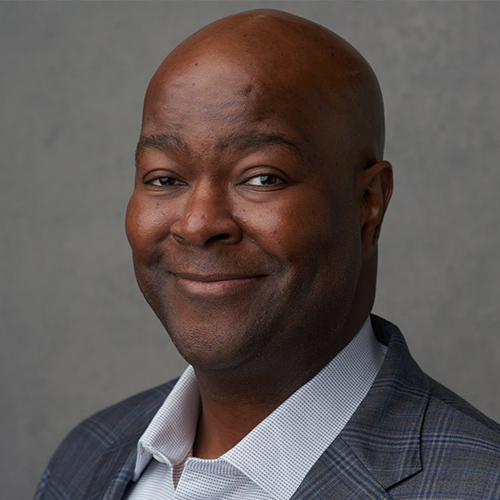4 minutes
Four ways to interact better with your C-suite leaders—and ready yourself for your next career milestone.
What do C-suite executives think about? And what are the best ways to communicate with them based on their style?
We might assume that a credit union’s chief financial officer must be a linear thinker who bases decisions on facts and figures—so, I should give them the numbers! We might think a chief marketing officer must be a highly creative thinker, who might base decisions on what members say on surveys and in marketplace trends—so, I should appeal to their “fun” and “people” sides!
There’s certainly some truth to these stereotypes, but when was the last time you did a deep dive into the C-suite roles and the way each thinks and operates? While each C-suite role is unique, the group of executives that lead an organization also need to have some things in common—like the ability to think strategically.
Interestingly, leaders at every level can benefit from learning to think like an executive. This will help them not only communicate with their senior leaders, but also set them up for career growth. And the good news is that learning to think like a C-suite executive—or several of them—is well within reach.
Here are four things to do to help you think like an executive, interact with the C-suite better and set yourself up for career advancement.
1. Hone Your Interpersonal and Organizational Communication Skills
C-suite executives must be communication pros—good at sharing information with each other, members of their teams and the organization as a whole. Brian Cacic, inside sales & member relations manager of CUES, recently participated in CUES Advanced Management Program From Cornell University. He says this taught him “how to contribute more effectively during interdepartmental projects.” In his course, “We learned what effective communication looks like, the importance of communication during change, and the impact of asking the right questions,” Cacic says.
2. Learn to Think Strategically
This article from Indeed suggests that “to join the C-suite, it is necessary to display your innovative strategies and visionary ideas” and that “consistently presenting smaller ideas that make an impact can help you position yourself as a strategic thinker.”
“You might be able to live in a silo in your current role,” Cacic observes based on his recent leadership learning experience, “but understanding the organization on a more global and strategic level will give you a crucial edge when looking for career advancement opportunities. Even if you don’t have C-suite aspirations, the right leadership training can put you in a better position to effectively work with other department leaders and contribute to the organization in a meaningful way.”
3. Learn for Your Role and Beyond
Sometimes people joke about whether the chief IT guy, the CFO and the chief marketer can really communicate with each another. But the truth is, the success of the organization often depends on the members of the C-suite being able to work together well.
Paul Butler, CEM, branch manager for Kootenay Savings Credit Union, Trail, British Columbia, says his recent participation in CUES Advanced Management Program From Cornell University helped him with this. It “definitely gave me a deeper insight into all aspects of a successful credit union, including the challenges and how each part of the business interacts and thinks,” he says. “It gave me a better understanding of each of the C-suite mentalities, roles and functions.”
Butler also says he chose his training in part based on the wide geographic spread—and therefore breadth of thinking—the participants would represent.
“I was looking for a credit union-focused professional program that was broad in scope and would position me for future success,” he says. “It was important to me that the program would bring together leaders from across a wide range of credit unions in North America. My cohort brought together attendees from Alaska to Florida and Saskatchewan to British Columbia; it was truly continent-wide. The breadth of knowledge brought to the table was my inspiration, as I was looking for that opportunity to explore new ways to create a better and more relevant credit union for both our employees and our members.”
4. Look Ahead to Your Next Learning Opportunity
Even as you learn how top executives think and operate, also think about how your current learning paves the way for your next learning. Organizations with best-practice talent development programs often have written individual development plans for each member of the team. These plans can help everyone in the organization see how the learning they’re doing now might lead next to the next thing to learn.
Butler thinks he chose well when he attended. The nine-month learning experience “is unique in its scope, reputation, designation and faculty expertise,” Butler says. “It is a career-enhancer within the credit union movement. It is also a steppingstone to CEO Institute, which is the ultimate goal of many credit union leaders continuing their journey in lifelong learning and professional development.” The next offering of CUES Advanced Management Program From Cornell University launches July 20. Hope you can join the cohort.
Since joining CUES in March 2013, John Pembroke has played a leadership role in developing and launching a new direction in CUES’ strategy, branding and culture. Under his guidance, CUES has revamped its membership structure and launched new institutes. Additionally, CUES has expanded its market further into Canada and the Caribbean. Pembroke’s experience includes 25 years in financial services, marketing and e-commerce. He also has served as chief marketing officer at PSCU Financial Services, St. Petersburg, Florida. Pembroke holds a B.S. in Economics from the Wharton School of Business of the University of Pennsylvania and an MBA in Marketing and Policy Studies from the Booth School of Business of the University of Chicago.






